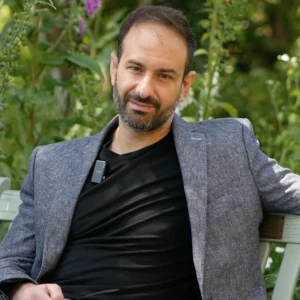
Psychotherapy training enables CAT Practitioners to become Cognitive Analytic Psychotherapists via an additional two-year taught and assessed course, plus a Dissertation year. This leads to eligibility for registration as a CAT Psychotherapist with the United Kingdom Council for Psychotherapy (UKCP) Humanistic and Integrative College [HIPC}.
ACAT runs one Psychotherapy Training course known as the Inter-regional Residential ACAT Psychotherapy Training (IRRAPT). This is a two year, biannual course which includes three residential weeks per year, each of which lasts five days. Applicants to the Psychotherapy Training must have completed a two-year CAT Practitioner training.
The course actively recruits CAT Practitioners from around the UK and abroad to cultivate a CAT learning community fostering diversity and creativity in CAT practice.
Psychotherapy training extends and deepens the core concepts and clinical skills learnt in the Practitioner training, enabling increased flexibility and creativity in using CAT with a diversity of people in diverse settings.
As a psychotherapy trainee, you consolidate and broaden your awareness and become better equipped to operate independently as a CAT psychotherapist. Through a structured but collaborative process the training aims to maximize your capacity and skills for learning, and to self-direct your own learning process.
The course pays particular attention to the role of the psychotherapist and knowledge of the therapeutic relationship. There is an emphasis on experiential learning as well as didactic and problem based learning. Through this training you will pay particular attention to your personal development, including your own personal psychotherapy during the course.
The key CAT principles of collaboration and dialogue are actively employed in the learning process amongst trainers and trainees. A core value of the CAT psychotherapy course is to generate a CAT learning community drawing on a diversity of trainers and trainees from the various CAT trainings around the UK and abroad. You are supported to engage and develop as a psychotherapist within this cross-fertilization of CAT practice.
Graduates of the training frequently take up senior roles in training, in service and organisational development, and in specialised clinical settings.

"It's something unique, something that you can't describe in words. You have to experience it, to go through it. It is a process of growth and development and learning"
Michael Petalas - Clinical Psychologist and IRRAPT trainee

“The IRRAPT course is so stimulating, exciting, confidence-building and worthwhile. I would recommend every CAT Practitioner to take their training further and develop their CAT skills and understanding.
This course has enabled me to stretch and develop my own ZPD, helping to really consolidate my knowledge and skills as a CAT Psychotherapist. There is such a difference and depth in my practice now and how I bring in my use of self within the therapeutic alliances that I establish. The course is very well designed, facilitated, sensitively paced and held by such a supportive team and containing environment. Worth every penny, blood, sweat and tears invested. But in true CAT style, the ending arrives too quickly”
This course runs biannually with an intake of up to 18-20 applicants. The next intake is likely to be in 2025/2026. It is open to applications from graduates from a CAT Practitioner training and welcomes trainees from diverse areas of the country or from sister CAT organisations abroad.
The formal taught aspect of the course is based on six, termly, five-day residential meetings at a peaceful location in Worcestershire, together with monthly small group locally based seminars. The taught aspect is two years with a further year for completion of a Dissertation and the required clinical hours.
Successful completion of the course enables registration with ACAT and UKCP as a CAT Psychotherapist.
You will have completed or be near to completing your CAT Practitioner training prior to beginning the application process. (In effect, you will be completing your seventh or eighth training case, and will be near to completing your written work/) Once you have completed your Practitioner training requirements and have secured ACAT accreditation, you will need to remain members of ACAT throughout your CAT Psychotherapy training.
As with CAT Practitioner training, entry is at a postgraduate level of competence. Applicants are normally members of a core caring profession or able to demonstrate equivalence.
You need to demonstrate experience/training in any form of psychotherapy at an introductory level to an equivalent of 150 hours in addition to your CAT Practitioner training. You need to have access to appropriate patients/clients and be able to access appropriate CAT supervision within course requirements. You also need to demonstrate experience of working within a psychiatric setting or have plans to meet this requirement.
You will have completed your own personal CAT therapy, with a minimum of 16 sessions (plus follow up), as part of your CAT Practitioner training. You also need to demonstrate a willingness to undertake a further programme of personal therapy and development throughout the CAT Psychotherapy training. Additionally, you need to demonstrate an ability to sustain commitment to the intensity of the training process.

“Wonderful proper adult course that adds richness and depth to theory and practice.”
“The IRRAPT course gave me an observing eye view of CAT that broadened my outlook away from mental health to see how its concepts and theory can be applied and adapted to conceptualise and work with gender diversity.“
The course in comprised of a combination of workshops or training days, seminars, peer group work, personal learning, supervision, clinical practice and personal therapy.
The course consists of two years of taught study divided into six four-monthly modules. Each module consists of a five-day residential meeting, seminars, tutorials and required reading. The residential meetings include:
You are required to be in ongoing CAT supervised clinical practice during the two years of the course> You will work with a minimum of eight cases under the weekly supervision of a UKCP accredited CAT supervisor. This would normally consist of a minimum of 15 minutes per case, with a minimum of 40 supervision weekly meetings a year, normally face to face.
You are encouraged to seek group supervision but may access individual supervision if you had group supervision during your CAT Practitioner training.
You are required to complete at least 450 client hours. This total includes all supervised cases from the start of your Practitioner training. These hours include assessments, follow-ups and uncompleted cases. As a guide approximately 25 cases of 16 sessions equate to 450 hours.
You need to remain in supervision until the completion of your clinical work. This typically takes from two to three years.
Clinical work should include a diversity of individuals and presentations, reflecting social, cultural, racial and sexual diversity as well as diversity of age, clinical diagnosis, neurodiversity and complexity of difficulties. If you work in a specialist setting you are required to seek an additional placement for a minimum of half of the eight CAT psychotherapy cases to ensure diversity of experience. If you have worked exclusively in specialist settings throughout your previous CAT Practitioner training, you may also be required to gather additional clinical hours outside of your speciality, within the 450 hours required.
Throughout the two years of training you will commit to an ongoing programme of personal psychotherapy. This will include a further experience of time limited CAT at some point within the two years. You are also expected to seek additional experiences of personal psychotherapy during the two years. These will reflect the integrative nature of CAT, your personal interests and your developmental needs.
Personal psychotherapists are expected to be registered with UKCP or an equivalent psychotherapy accreditation body. Your personal therapy and the relationship you have with your CAT and other therapists are confidential, within the usual exceptions to confidentiality outlined in ACAT's Code of Ethics and Practice (or equivalent codes in the case of non-CAT psychotherapists). Information is not shared with the course other than your therapist completing a brief form about frequency, duration and hours of therapy completed, which you return to the course leaders.
Written work includes:
You will be allocated a tutor to support you in the written work.
Assessment consists of successful completion of attendance and participation, of written work, supervision reports, attendance of personal psychotherapy and the successful completion of all other course requirements.
Please note that most trainees take a minimum of an additional year following the taught two years, to meet the hours’ requirements for clinical practice and to write their dissertation.
Following successful completion of all course requirements and accreditation by ACAT, you are then eligible to apply for UKCP accreditation as a CAT Psychotherapist (Humanistic and Intergrative Psychotherapy College - HIPC). You can be listed as a CAT Psychotherapist in our register of members.
The next intake is likely to be in 2025/2026. To register your interest, please contact Niki Larsen-Johnson, Course Administrator - email niki.larsen@acat.me.uk
For detailed enquiries about the course content, please contact Hilary Beard, Course Director - email hilary.beard@slam.nhs.uk
(updated March 2025)